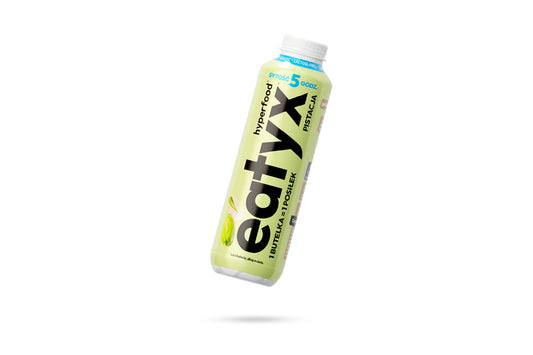Excess water in the body is often the result of physiological factors. However, it should be remembered that such a condition may also be a consequence of, among others: dietary errors and a sedentary lifestyle, and in some cases it indicates serious diseases. The symptoms of this condition are extremely unpleasant and bothersome, so it is worth knowing how to deal with them. Why does excessive water accumulate in the body? What are the effects of this condition? We answer these and other questions in this article.
Water constitutes on average 60-70 percent. human body weight. I guess everyone realizes how dangerous dehydration is for the body. However, it is worth knowing that not only water deficiency, but also water retention in our body should be treated as an undesirable condition. It cannot be ignored that under normal physiological conditions, water in the body is maintained at the correct level, i.e. it is neither too little nor too much. We then talk about the so-called state of water balance. If there is a deviation from the physiological norm, you need to react, because water retention in the body often indicates serious problems.
Excess water in the body – what is it and what are its causes?
When talking about water retention, we mean a condition in which the water balance is disturbed as a result of the accumulation of excess fluids in the tissues (in the intercellular spaces). This should not be considered a disease, because water retention itself is not a disease. This does not mean, however, that such a condition does not require a response. On the contrary, increased water accumulation may be a symptom of serious diseases or significant dietary errors, although physiological factors are more often responsible for it.
Women experience water retention more often than men. In their case, unpleasant symptoms may appear in the second phase of the menstrual cycle and at the end of pregnancy. In both situations, the unpleasant condition is related to hormonal disorders. We are talking about too high estrogen levels in relation to progesterone levels. If water retention is hormonal, it will go away on its own in the first days of menstruation or after delivery, but given the severity of the symptoms, they can be counteracted (during pregnancy, after consulting a doctor).
Not only hormonal factors determine water retention in the body. Possible external causes are listed below.
- Insufficient physical activity : People who lead a sedentary lifestyle experience slower blood circulation. As a result, fluid stagnation occurs in the tissues.
- Staying in one position for a long time : a constant body position, e.g. after many hours of sitting at work or a long trip by car or other means of transport, slows down the outflow of venous blood.
- High ambient temperature : during hot weather, veins dilate. As a result, blood begins to circulate more slowly and stagnates in the blood vessels. Fluids then leak into adjacent tissues.
- Taken medications : water retention in the body may be the result of taking certain medications and pharmaceuticals, e.g. contraceptive pills, non-steroidal anti-inflammatory drugs or fludrocortisone.
It should be emphasized that nutritional errors dominate among non-physiological factors. Paradoxically, excess water in the body is most often the result of insufficient fluid intake. When the water supply is insufficient, the body begins to defend itself against dehydration by accumulating water in the intercellular spaces.
A proper diet is very important. A diet low in protein (proteins have the ability to bind water molecules) and potassium, but high in sodium may lead to this condition. This is why excess water in the body often affects people who eat at fast food establishments. Not everyone has time to cook healthy, well-balanced meals every day. In this case, however, it is worth reaching not for junk food , but for quick ready-made meals that do not contain substances considered harmful. These products contain all the macronutrients necessary in the diet, as well as vitamins and minerals. Importantly, a person who chooses healthy ready-made meals can be sure that he or she eats a properly balanced meal and thus minimizes the risk of water retention.
Excess water in the body and health
In some cases, water retention in the body is a symptom of the disease. This condition may accompany diseases such as:
- chronic venous insufficiency,
- deep vein thrombosis,
- heart failure,
- Hypothyroidism,
- kidney disease, liver disease.
Then, in parallel with the accumulation of water in the body, a number of other symptoms occur. This condition always requires consultation with a doctor and initiation of specialized treatment.
Excess water in the body – symptoms and first warning signals
This unpleasant condition produces a number of characteristic symptoms. Excess water in the body is first manifested by swelling. Swelling is visible in the ankles, feet, fingers, face and eyelids. Importantly, if swelling results from excess water, it has a "cake-like" structure - under pressure, the swollen body deforms, and after a while returns to its proper form.
Swelling is not the only symptom indicating excessive water accumulation. Symptoms that may appear with this condition include:
- weight increase (up to 3-4 kg per week),
- water cellulite,
- feeling of heavy legs,
- loss of concentration,
- irritability,
- shortness of breath,
- decrease in exercise tolerance,
- chronic fatigue.
How to recognize excess water in the body? Diagnostics and auxiliary tests
While the above-mentioned symptoms are characteristic of excess water in the body, it cannot be ignored that they may also appear in the course of certain diseases. To be sure that the problem is actually caused by the fluid accumulated in the intercellular spaces, it is worth performing a body composition analysis. The test involves measuring the electrical resistance of soft tissues. A special device sends a low-intensity electrical impulse that passes through the entire body. The analysis can be performed at a dietitian and in some doctor's offices, but also at home, using a special scale. It is worth mentioning, however, that not all devices are highly accurate in terms of measurement.
If excess water in the body is chronic or recurrent, more detailed diagnostics will most likely be necessary. In such a situation, the doctor may order appropriately targeted tests: electrolyte and total protein levels, complete blood count, general urine test, liver function tests and FSH level test (in women).
Effects of excess water in the body – what threatens us?
Water is one of the most important chemical compounds on our planet. Without it, life could not have arisen, at least not in the form in which it exists. In this context, it is not surprising that any disturbances in the fluid balance in the human body may have serious consequences. The proper circulation of water in our body determines all key processes, such as metabolic changes, digestion and intracorporeal transport. It also participates in cleansing the body of toxins. So what can excess water in the body lead to? The effects can be extremely unpleasant.
What are the long-term consequences of excess water on the body and how to avoid them?
Excess water promotes the accumulation of toxins, which in turn can cause many unpleasant ailments. At this point, we should mention primarily skin problems, deterioration of hair and nails, lack of weight loss effects, feeling of constant fatigue, excessive sleepiness, apathy, bowel movements, mood swings and recurrent headaches.
How to avoid these consequences? First of all, you should ensure proper hydration of your body. Secondly, you need to pay great attention to the quality of the meals you eat. Thirdly, you should abandon a sedentary lifestyle. Fourthly, it is worth taking dietary supplements that will help solve the problem of water retention.
Treating excess water in the body – find out how
If excess water in the body is a symptom of a disease, treatment should be carried out by a doctor. In other cases, preparations that contain ingredients that help remove retained fluid from the intercellular spaces are very effective.
This effect is demonstrated by eatyx HYPER DETOX 360 . It is a comprehensive agent whose ingredients help to remove excess water (this is the effect of nettle), ensure effective detoxification of the body (oat extract is responsible for this), and also help protect cells against the effects of free radicals, regulate energy metabolism and restore the skin, hair and nails look healthy.
Eatyx HYPER VITAMINS AND MINERALS + PROBIOTICS is also an extremely useful product. This preparation is characterized by extremely versatile effects. The vitamins, minerals and plant extracts it contains have a beneficial effect, among others: for vitality, help fight fatigue, stimulate the body's immunity, have a positive effect on hormonal balance and support protein synthesis. This makes eatyx HYPER VITAMINS AND MINERALS + PROBIOTICS work well not only as a preventive measure, helping to prevent water retention in the body, but also after removing excess fluid from the tissues.



